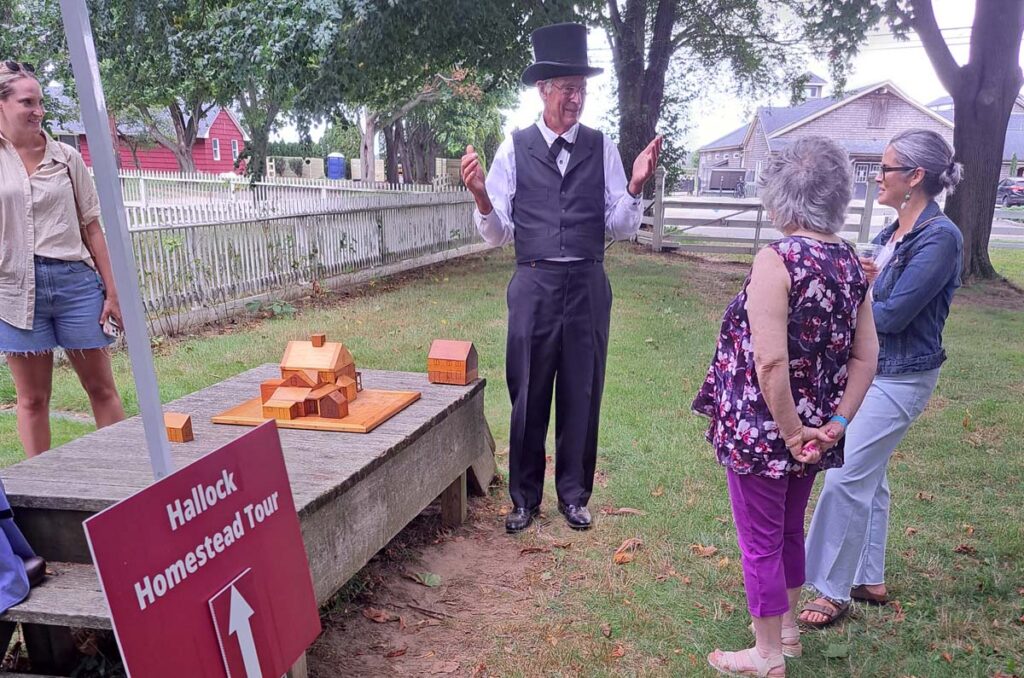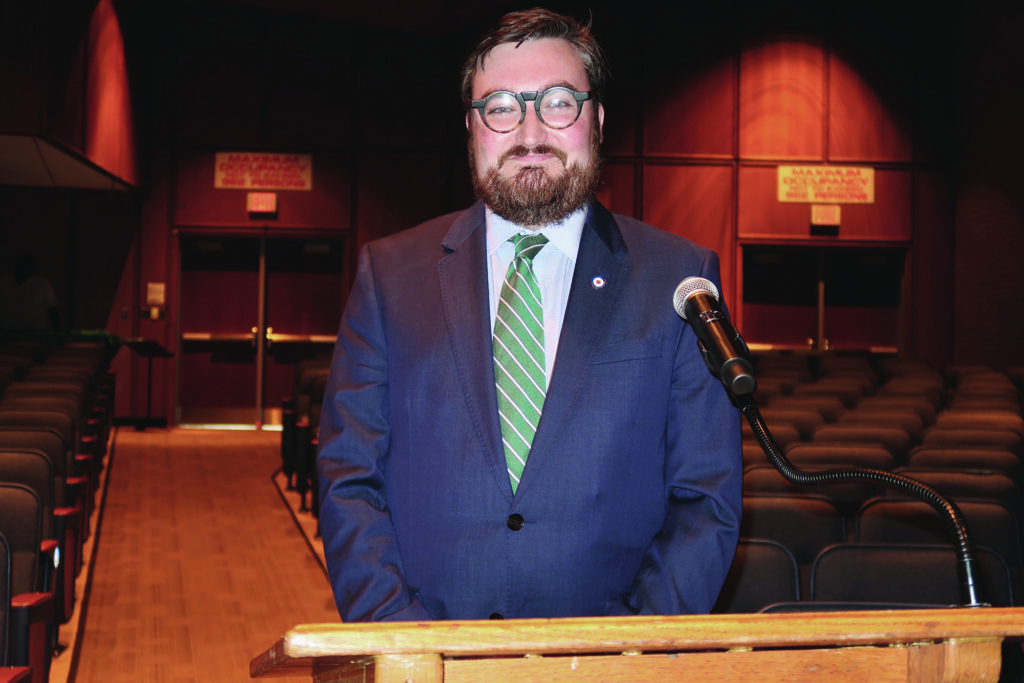Riverhead Youth Court is in session and run by teens

Riverhead Youth Court is a voluntary alternative to the traditional juvenile justice system that allows first time nonviolent teenage offenders to be legally judged by a jury of their peers.
On Tuesday nights, after Riverhead Town Justice Court closes for the day, another group enters to take their places in the courtroom for legal proceedings that have been quietly playing out in Riverhead for decades.
The judge is 17 years old. The jurors are high school seniors. The prosecutors and defense attorneys are students from Riverhead or Shoreham-Wading River high schools. The defendant is facing real-world charges.
The students “learn the inner workings of a criminal trial,” said Riverhead Town Justice Lori Hulse, whose court often refers minor juvenile offenders to Youth Court, provided it meets certain criteria.
“They can opt to participate in Youth Court — and when they do, they are committing to participate in the program,” Justice Hulse said. “The good news for the defendant who has a case in my court is that, once it’s referred to Youth Court and the individual fully participates, the case is dismissed.”
Sentences can include up to 45 hours of community service, requirements to submit letters of apology, essays reflecting on the commission of the crime and a mandatory return to Youth Court at a future date to participate as juror in another defendant’s sentencing.
The Youth Court essentially functions as a hybrid of a criminal trial and a sentencing hearing. Every defendant has already pleaded guilty and it’s up to the Youth Court to debate the case and issue the sentence. Students serving as attorneys make opening and closing arguments, call witnesses, issue objections and follow standard rules of courtroom procedure.
After closing arguments, the student jury deliberates behind closed doors, while back in the courtroom, a Riverhead police officer with a law degree works with the student attorneys, offering suggestions and critiques of the performances.
Now in its 27th year, Riverhead’s is the oldest such youth court on Long Island, and one of only two on the island trying cases for defendants under age 20, according to the Riverhead police department. It was founded by Riverhead Police Chief David Hegermiller, who traveled upstate with a colleague in the 1990s to observe a youth court in Colonie, N.Y., then brought the program back to Riverhead.
Last Tuesday’s proceedings dealt with a juvenile who had confessed to petit larceny for stealing more than $200 in merchandise from an area store.
The prosecuting attorney told the judge and jury that the defendant walked into a store and put several items into a bag “and walked past all points of sale before being stopped by a police officer. Under no circumstances is this responsible, acceptable or civil behavior.”
The prosecution asked for a sentence of 40 hours of community service.
In their opening statement, the defense said there was more to the story.
“This is a case about a young boy who made a mistake,” the lead defense attorney said, contending that the defendant was pressured by a friend with whom he no longer associates to commit the crime.
“Throughout the course of this trial, please keep in mind that what the defendant did put no one in any kind of danger,” the defense attorney said. “No one was at any physical risk because of his actions. As you will hear, the defendant has already written two apology letters.”
Both the defendant and his mother were called to the stand to testify.
The defense asked for five hours of community service, and the nine person jury ultimately handed down eight hours.

This year, 52 students from Riverhead and Shoreham-Wading River high schools are participating in the program. Since its inception, the youth court has heard 276 cases, with more than 1,200 students over the years serving as judges, jurors or attorneys, Riverhead officials said.
In her 15 years coordinating the court, Riverhead police department youth counselor Beth Maccagli said she’s witnessed remarkable transformations in students, who often start out shy and end up as excellent public speakers with palpable self-confidence.
“They come in, and they are hiding in the back and they don’t speak in public,” she said. “They will say, ‘I don’t do public speaking.’”
Yet some of her biggest stars this year started out as wallflowers.
“Lorena Correa — she didn’t participate for a very long time,” she said, referring to a Riverhead High School senior involved in last week’s case who is also captain of the school’s mock trial team, which reached the county playoffs this year.
Another “young lady, who started in seventh grade and was new to the district, didn’t participate at all. She could now run these courts,” Ms. Maccagli said, ticking off one example after the next.
“Tiffany Perez — she did not do public speaking. She is a senior and she still comes to Youth Court,” she said. “It’s work: they have to create these cases, talk with these people. That always amazed me.
“I could never have done this when I was their age,” she continued. “You’re asking police officers questions, security guards, parents [of the defendants]. When the prosecution has to go up against parents, for them to be able to do that takes a lot of confidence.”
Ms. Maccagli and other officials involved in the program said the nature of the cases has changed in recent years. In the fall of 2018, New York State passed the Raise the Age law, raising the minimum age at which a youth can be prosecuted as an adult to 18. Bail reform legislation passed the following spring eliminated cash for most misdemeanor and nonviolent felony charges.
“The cases we’ve got since Raise the Age went from graffiti and petit larceny to [third-degree] assault, [third -degree] burglary and obstruction of justice — which can mean interfering with a police officer,” Ms. Maccagli said, adding that the court “used to be just violations and misdemeanors, but the ante has gone up.”
The Riverhead court has also absorbed youth court cases from across eastern Suffolk County after other youth courts closed during the pandemic and never reopened. The Riverhead court now hears cases from as far afield as Shirley and the South Fork. The officials said in recent years the severity of the crimes has intensified; occasionally the Youth Court has handled cases involving some violence.
While many Riverhead Youth Court participants go on to become lawyers, even those with no plans for law school see value in the program.

Jack Fenech, 17, who served as the judge at last week’s hearing, hopes to join the New York Fire Department and work his way into the FDNY’s Bureau of Fire Investigation, which conducts criminal investigations into suspected arson cases.
“The really big thing is just overall professionalism,” he said of what he’s learned. “Because when it comes to the seriousness of some of these cases — we’ve come in to stabbing cases, we’ve come in to drug abuse cases, we’ve come across a very wide variety … Overall professionalism over basically the entire case” is vital.
Riverhead senior Tiana Atkins, 17, said she wants to be the first member of her family to earn a law degree. “Everyone in my family are doctors and nurses,” she said. “I just want to be a lawyer.
Shoreham-Wading River senior Shannon Redlein was a little embarrassed to admit that she first became interested in the law through a comic book hero named Daredevil, a practicing attorney in New York City.
“I was a horrible public speaker,” she said. “Horrible. Stuttering. It’s definitely given me some confidence in that sense. I also learned the logistics of just how a court of law works.
“It’s also interesting to see what goes on in a jury room and how people interact with each other,” she added. “You get to see the morality of different people and how they react to one another.”








